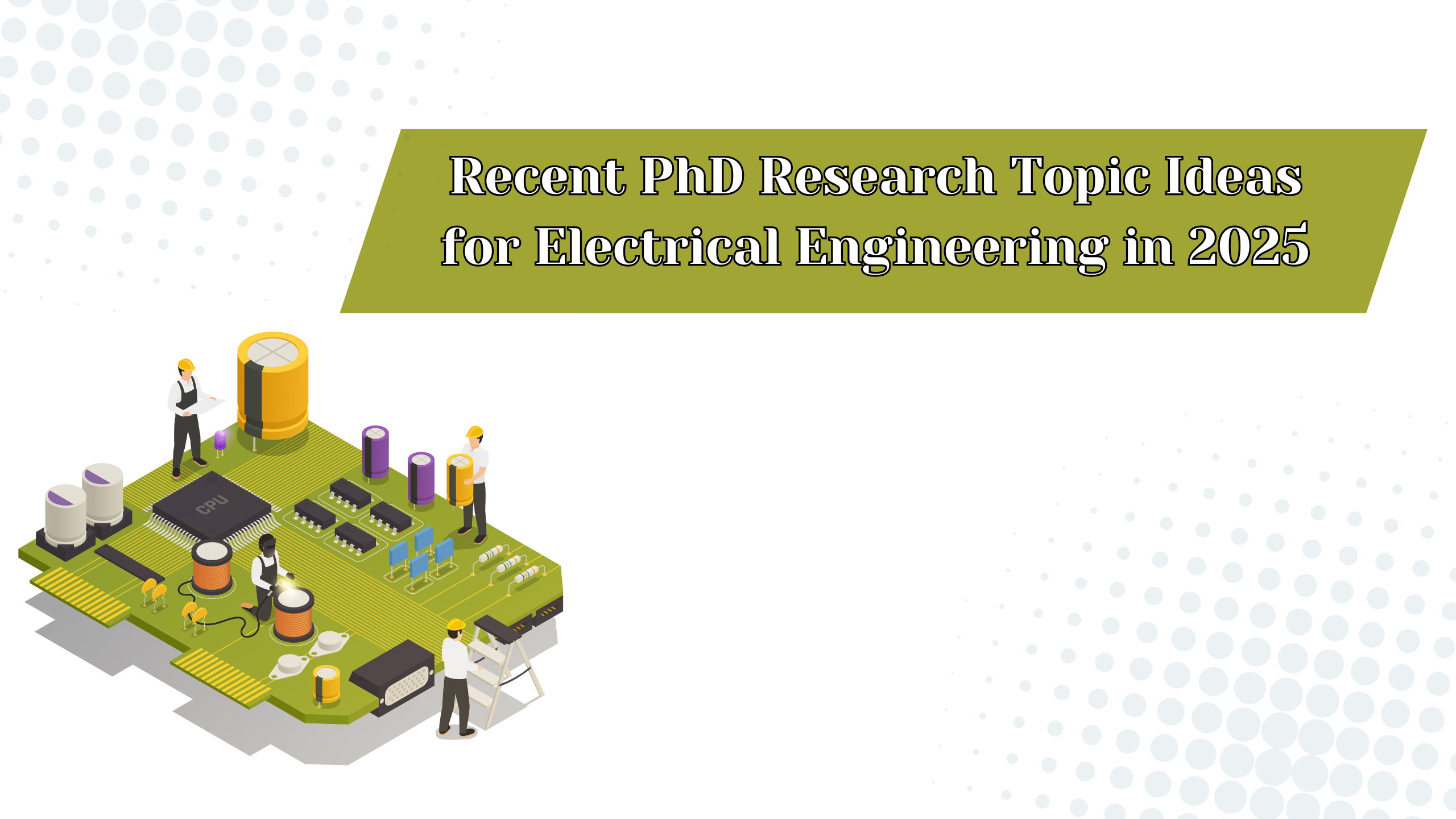02Apr

Electrical Engineering is constantly evolving with emerging technologies and innovative applications reshaping the field. As a PhD aspirant, selecting a cutting-edge research topic in Electrical Engineering in 2025 is crucial to making a significant contribution. In Electrical Engineering in 2025, several promising research areas stand out, offering potential for groundbreaking discoveries and technological advancements. Below is an in-depth look at some of the most recent PhD research topics in Electrical Engineering for 2025.

The integration of Artificial Intelligence (AI) and Machine Learning (ML) in power systems is revolutionizing the way electricity is generated, distributed, and consumed. Some possible research directions include:
The future of smart grids depends on efficient energy storage and seamless communication between energy sources and consumers. PhD candidates can explore:
Wireless Power Transfer (WPT) is gaining traction for applications in electric vehicles (EVs), medical implants, and consumer electronics. Research opportunities include:
The demand for high-performance semiconductor devices is increasing with advancements in AI, 5G, and quantum computing. Research areas include:
Quantum computing is poised to transform the field of electrical engineering, offering unparalleled computational power. Potential research topics include:
IoT is playing a crucial role in the development of smart cities by optimizing energy consumption, traffic management, and security. Research topics in this domain include:
As the world moves towards sustainability, improving the efficiency of renewable energy sources remains a top priority. Research opportunities include:
Electric vehicles are becoming more mainstream, but there are still challenges to address. Potential research topics include:
The intersection of electrical engineering and biomedical sciences has led to groundbreaking innovations in healthcare. Research areas include:
Signal processing is a fundamental aspect of various applications, including telecommunications, radar, and biomedical engineering. Research topics include:
With the increasing digitization of power systems, cybersecurity has become a crucial area of research. PhD candidates can explore:
Automation and robotics are transforming industries, leading to greater efficiency and innovation. Research opportunities include:
Choosing the right PhD research topic in Electrical Engineering in 2025 is crucial for making a meaningful impact in academia and industry. The topics outlined above represent some of the most promising research directions in Electrical Engineering in 2025, ranging from AI-driven power systems to advanced semiconductor technologies. By exploring these cutting-edge areas, PhD researchers can contribute to the development of innovative solutions that will shape the future of electrical engineering. If you’re looking for expert guidance on selecting and refining your PhD topic, consider seeking assistance from professional research advisors to ensure your work is impactful and aligned with current industry trends.
Kenfra Research understands the challenges faced by PhD scholars and offers tailored solutions to support your academic goals. From topic selection to advanced plagiarism checking.
The Paper Writing service is a special service that is handled by the experts to assure successful publication of the... read more

Writing a dissertation is not a one-day task—it is a long academic marathon that demands focus, consistency, planning, and self-discipline.... read more

Starting a PhD is a major life decision, and planning ahead is key to a smooth transition from your... read more

In the realm of academic research, accessing reliable and high-quality sources is paramount. Whether you're a seasoned scholar, a... read more

A PhD synopsis is a short, structured summary of your research plan that outlines what you want to study, why... read more
Teachers asked to apply for principals’ posts in engg colleges The statement "Teachers asked to apply for principals’ posts in engineering... read more

Best Databases for Academic Papers in 2024 read more
Hit Delhi University students to get another shot at exams Introduction:The decision to allow Delhi University students another opportunity to take... read more
WhatsApp us
Leave a Reply